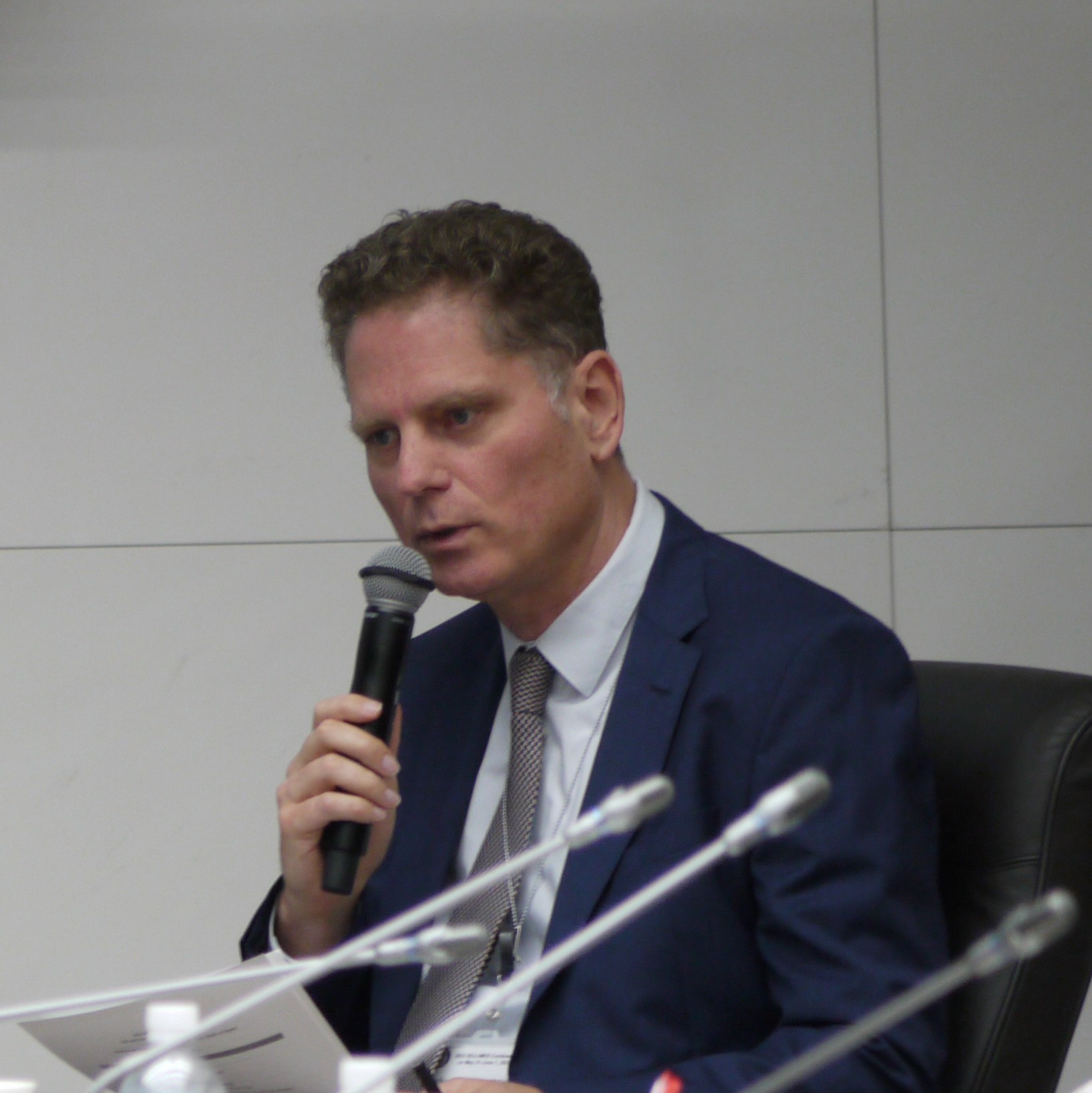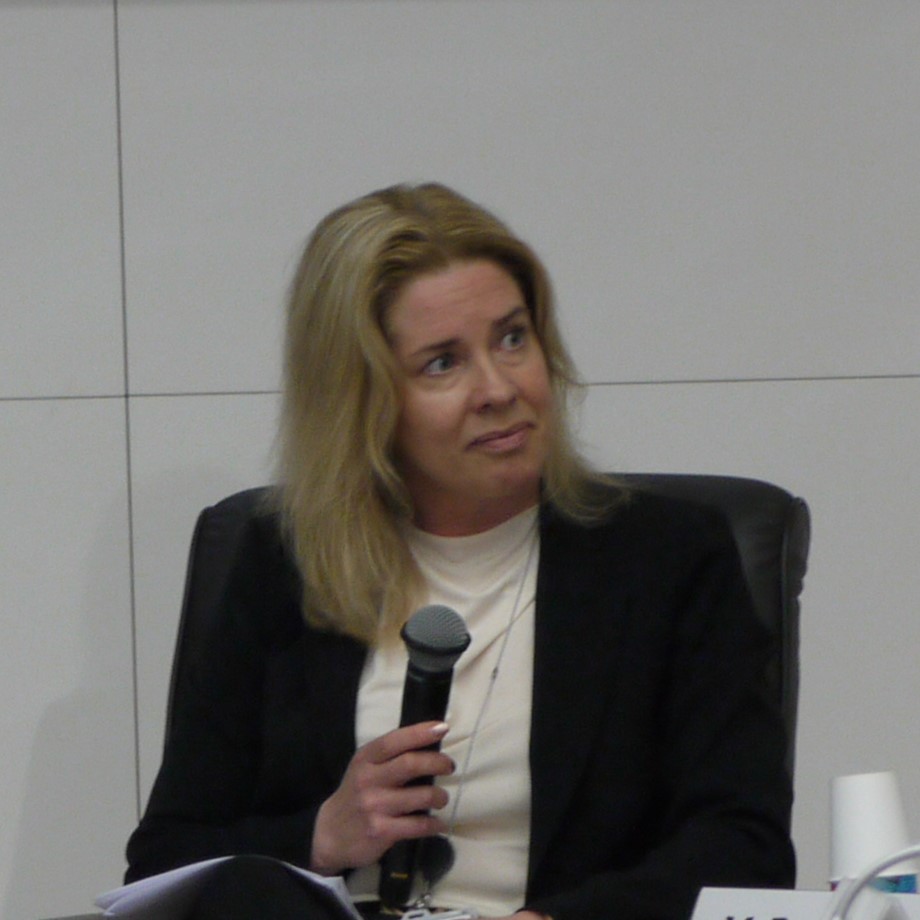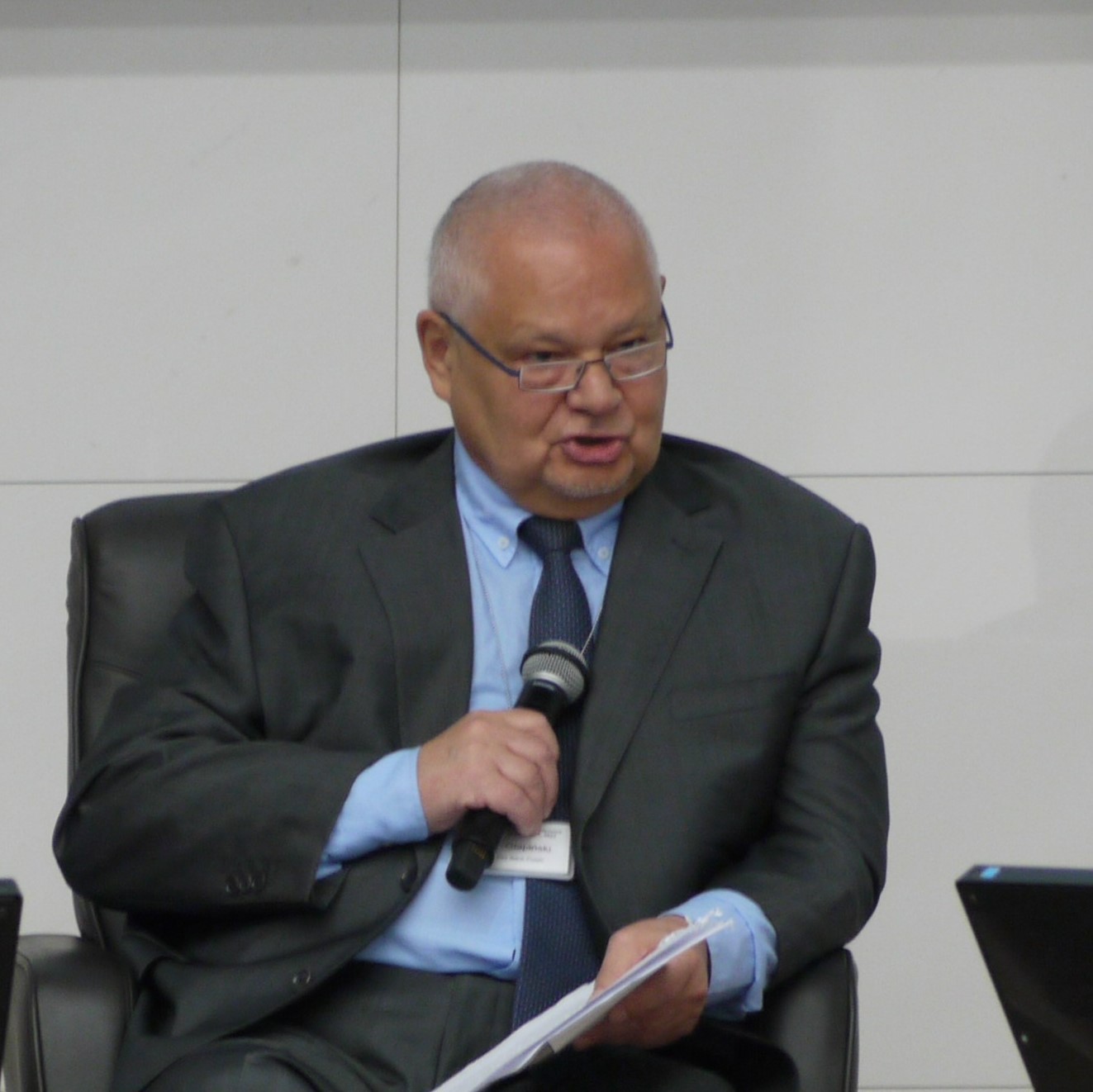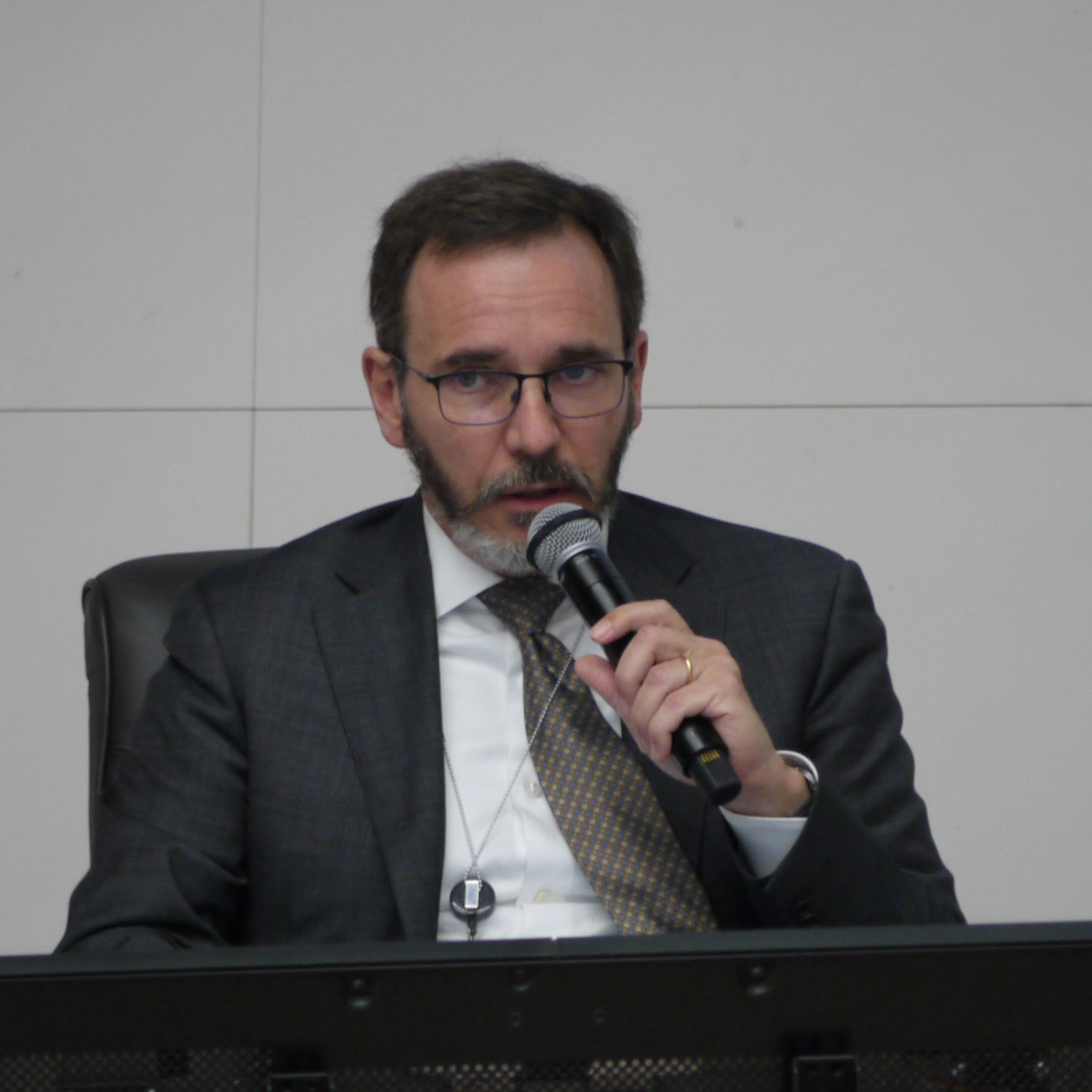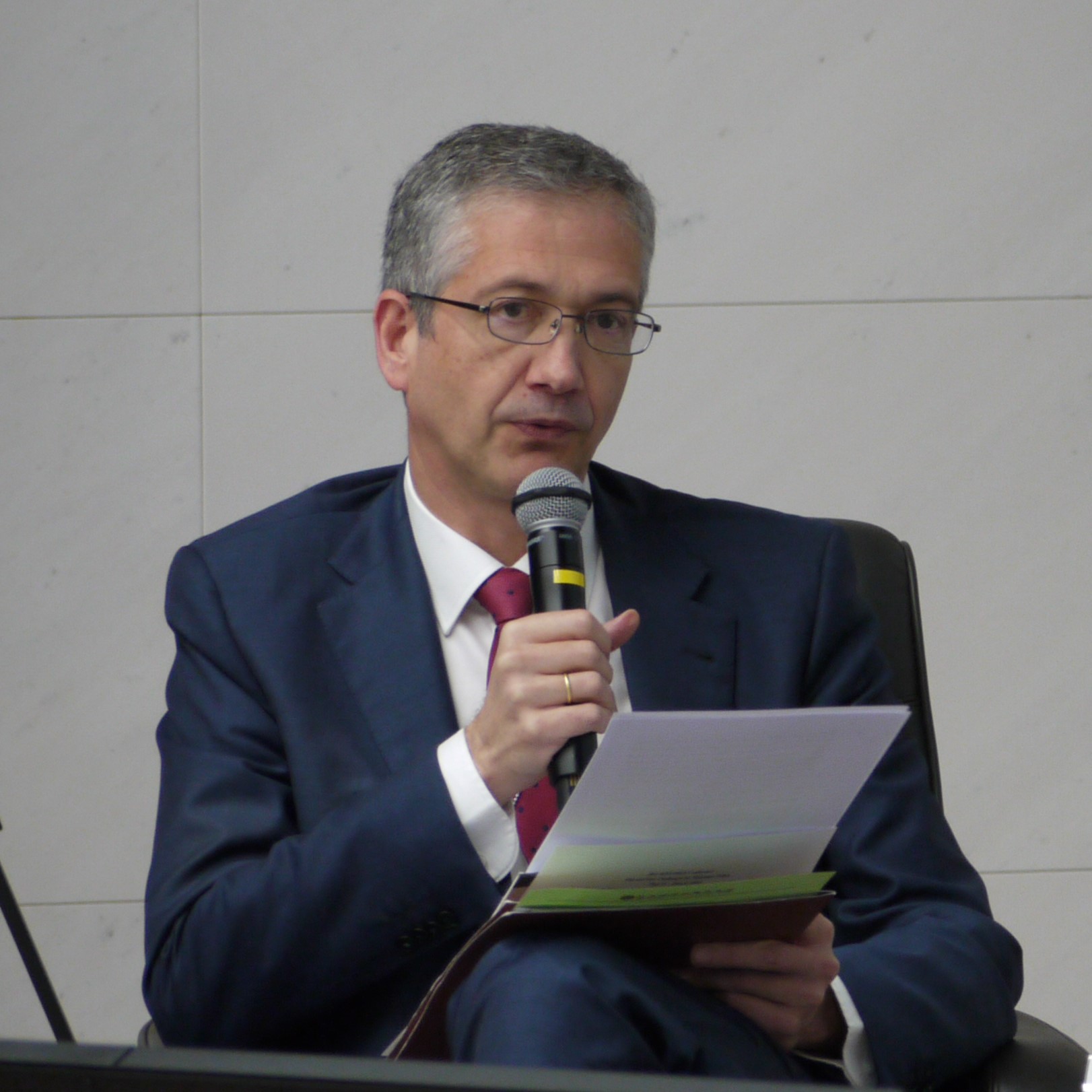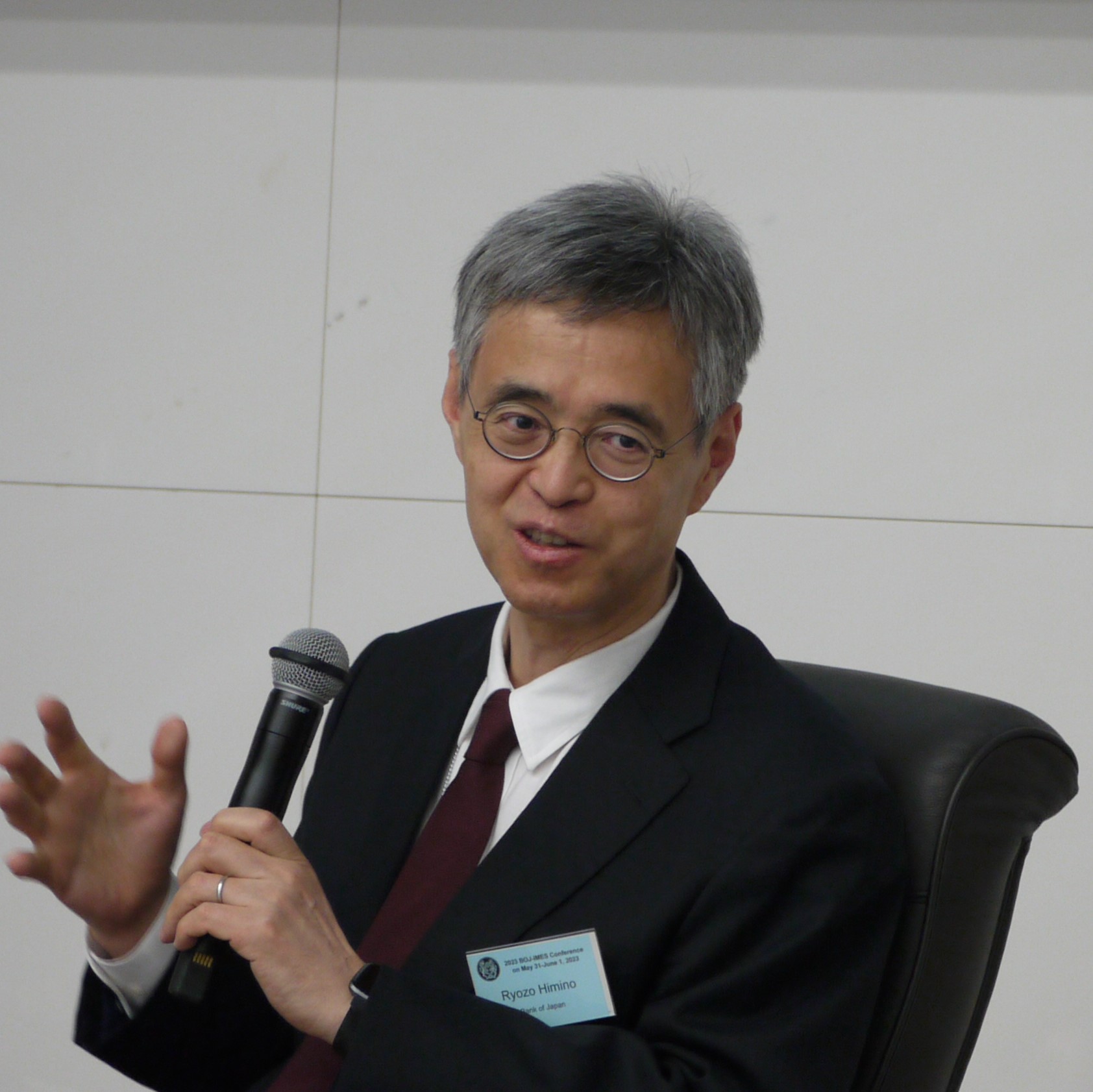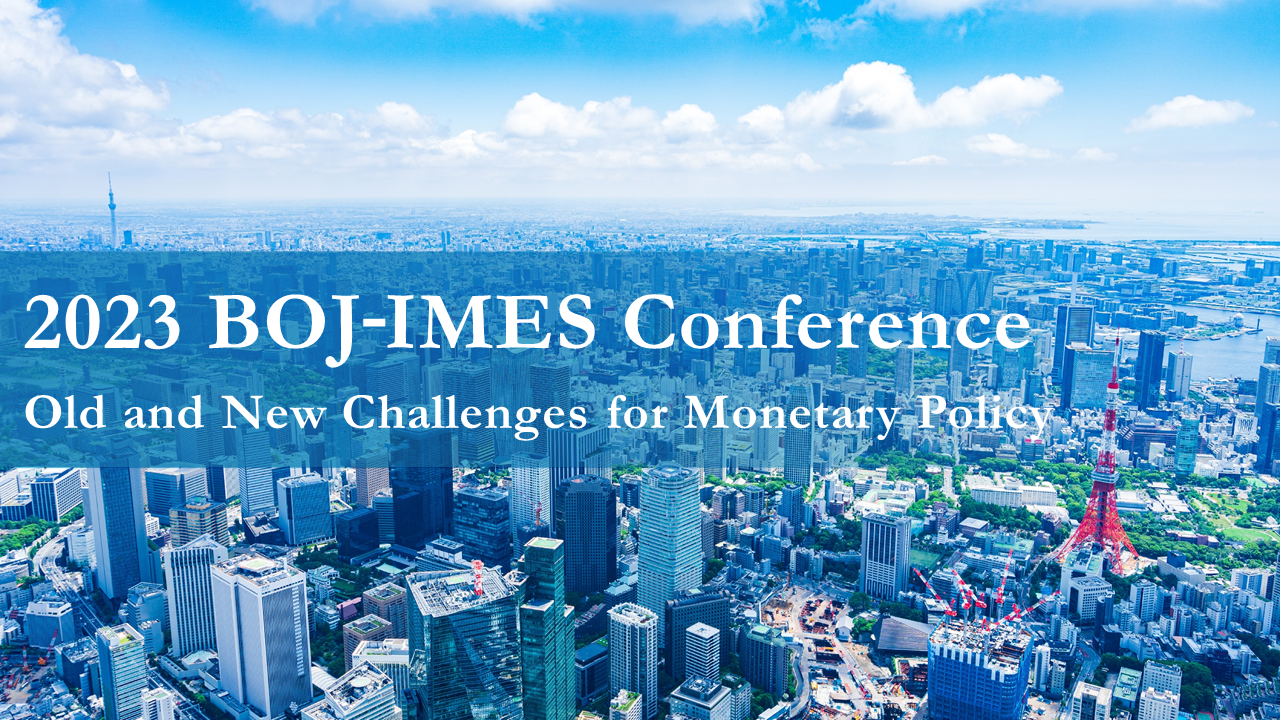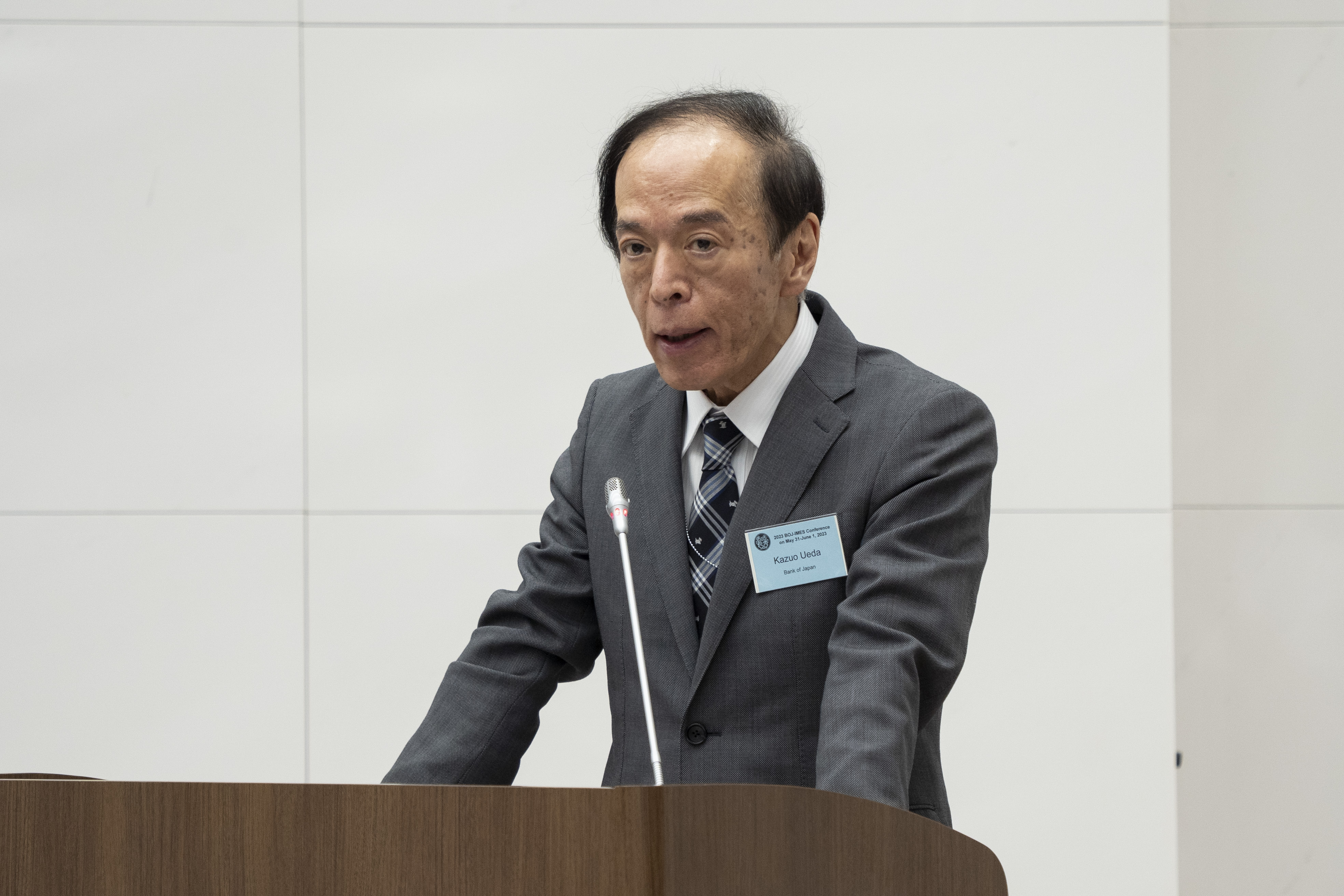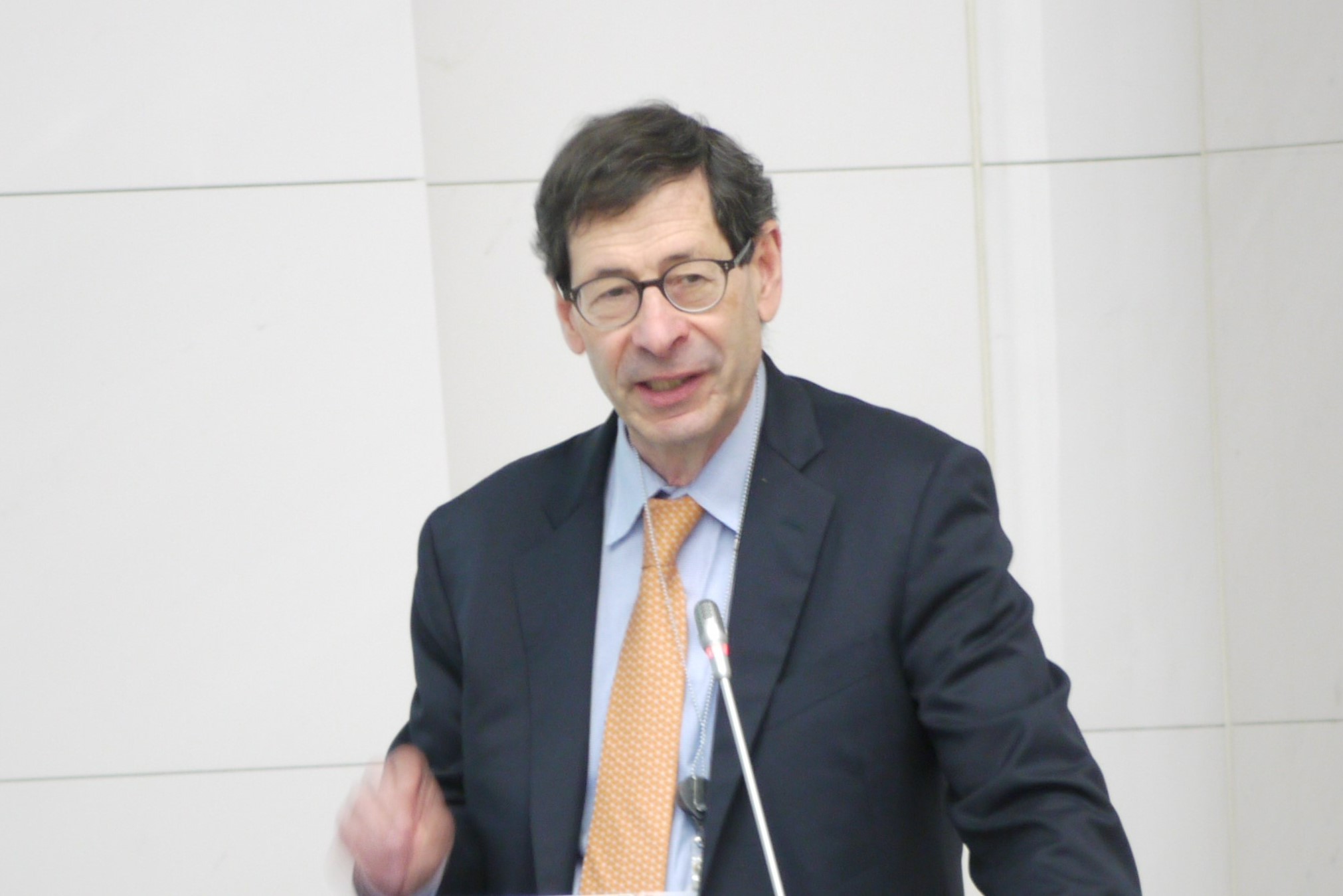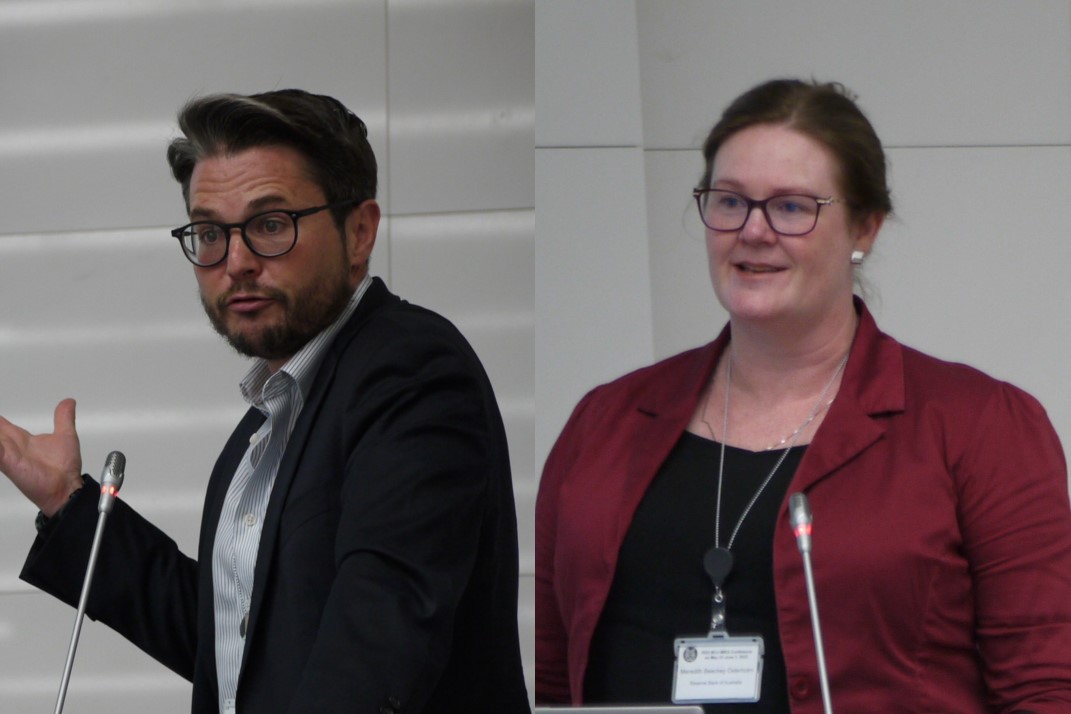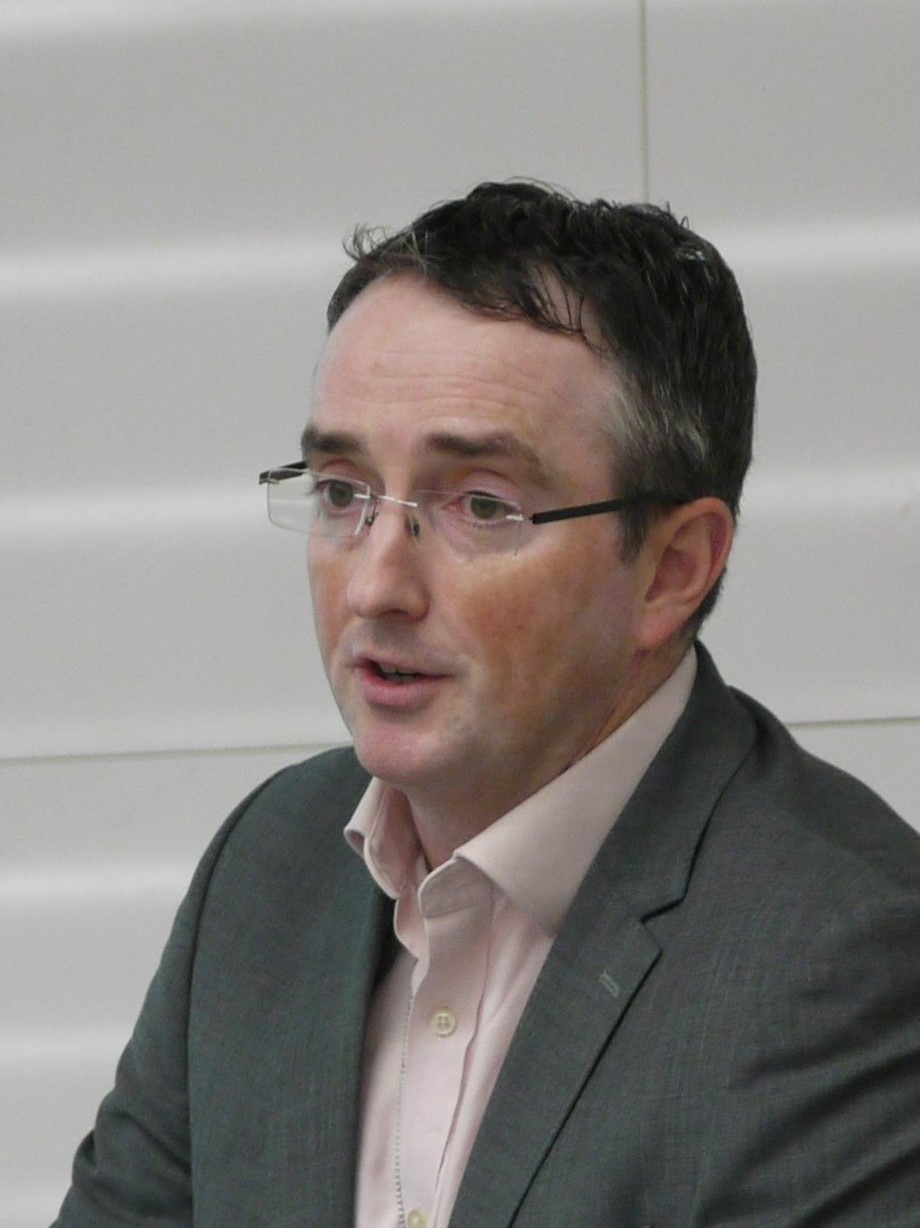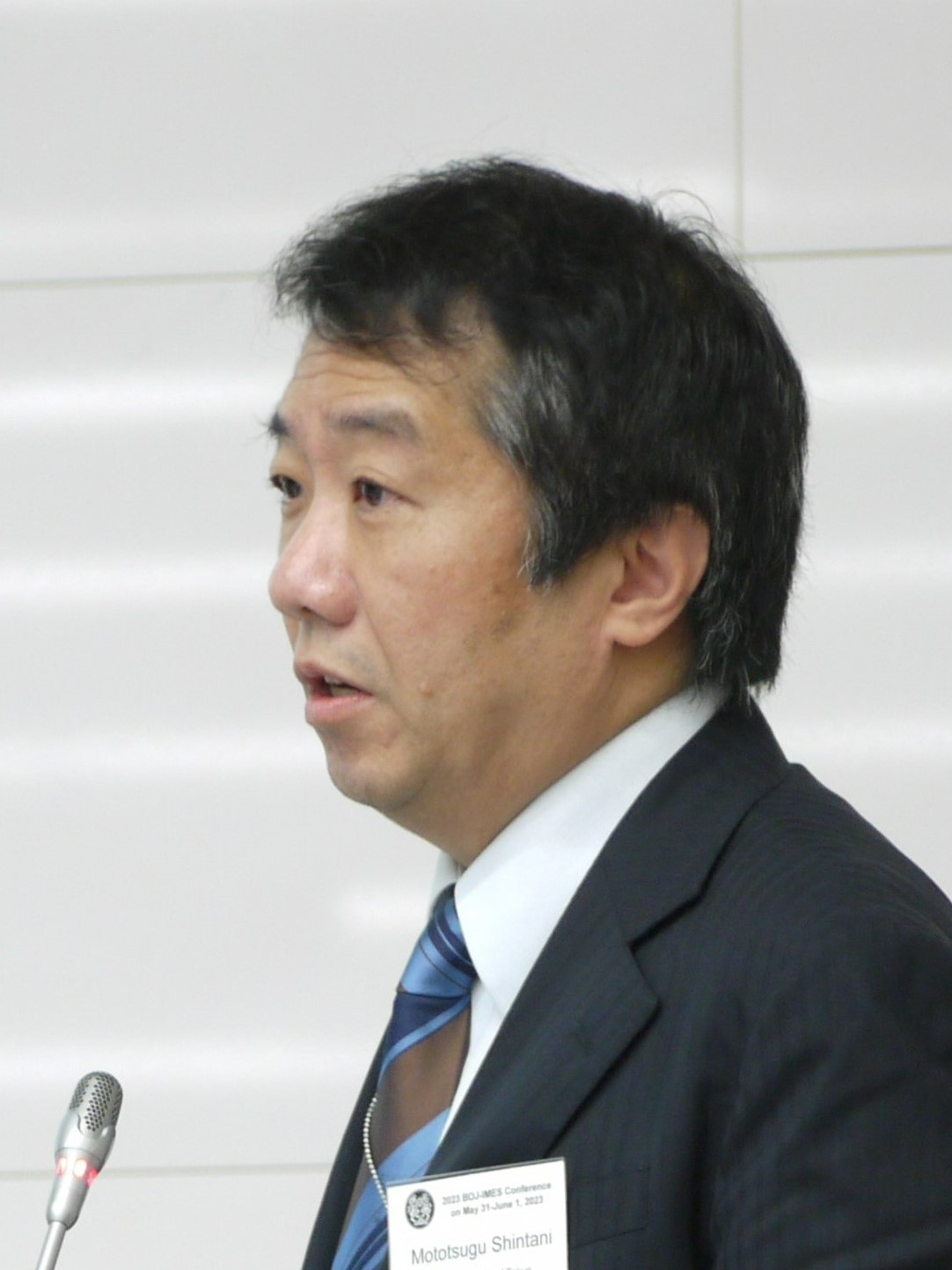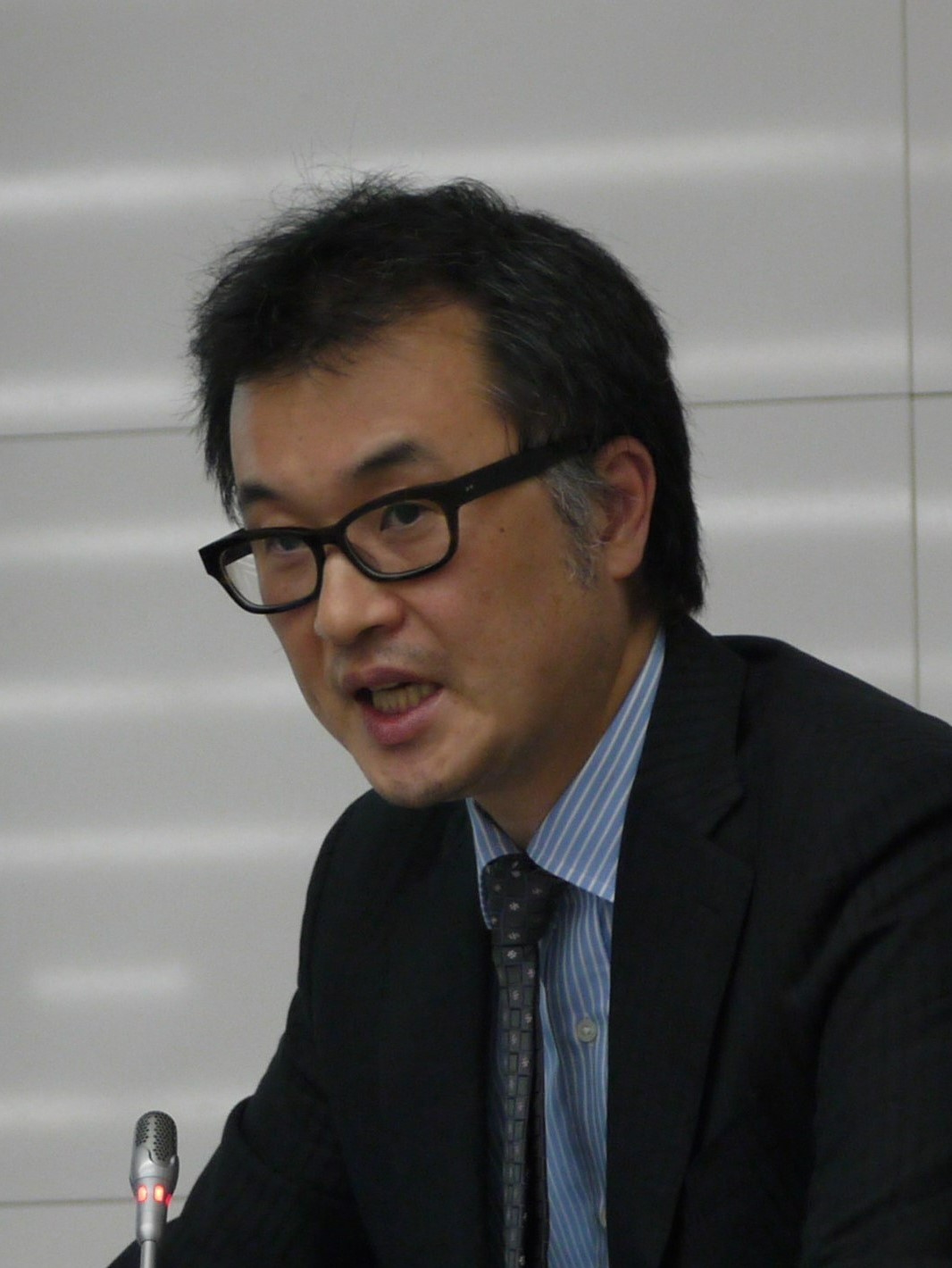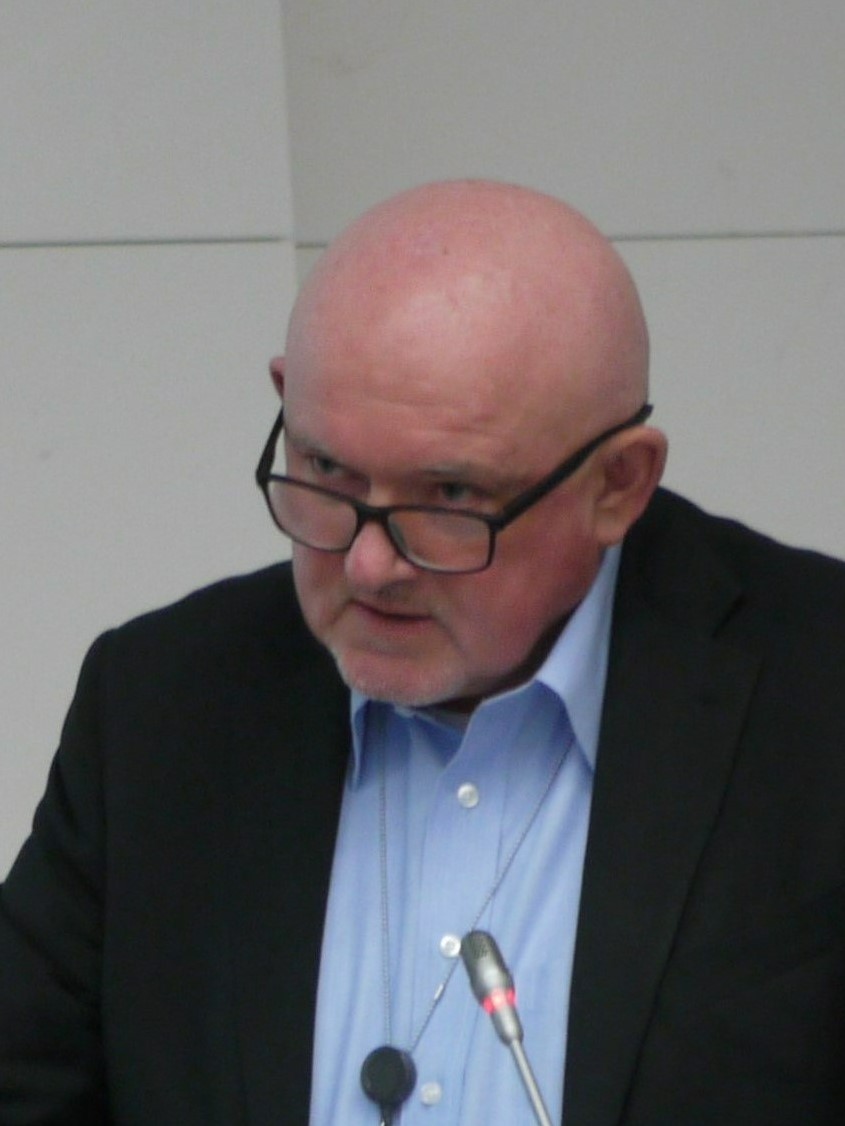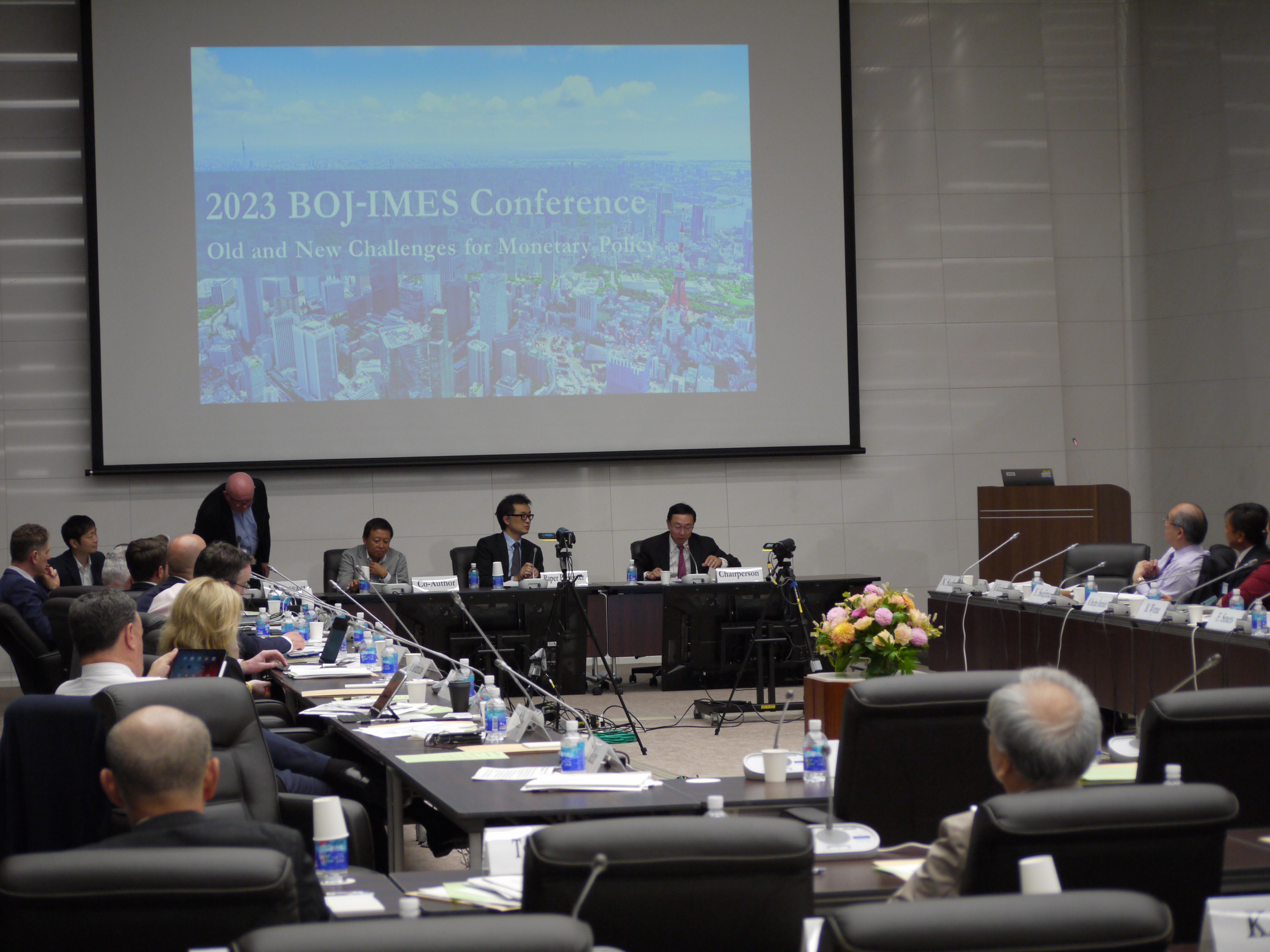
The Institute for Monetary and Economic Studies (IMES) of the Bank of Japan (BOJ) held the 2023 BOJ-IMES Conference in person, on May 31 and June 1, 2023, with the theme of "Old and New Challenges for Monetary Policy." The conference was the 28th conference since its start in 1983. It was held face-to-face after 4 years since 2019 due to the COVID-19 pandemic. Papers were presented on the formation mechanism of inflation expectations, textual analysis of monetary policy transcripts, and seasonal cycles of price changes, and policy panel discussions were held on the old and new challenges and prospects for monetary policy. [Program]
1.Opening Remarks
Kazuo Ueda (Governor, BOJ) said that the theme of the 2019 conference, which was held in person, was "Central Bank Design under a Continued Low Inflation and Interest Rate Environment," and he mentioned that the economic environment has changed dramatically in the last four years, with, for example, inflation in many countries reaching levels not seen in decades.
He first described efforts by policymakers in the 1970s to contain inflation rates during the Great Inflation as “old challenges,” and changes in the economic environment and in central banks themselves as “new challenges.”
Regarding the old challenges, he pointed out that lessons from the Great Inflation included the importance of understanding whether inflation was due to supply or demand factors and the need to stabilize inflation expectations. As for new challenges, he pointed out that, during the "low for long" period just before the pandemic, secular stagnation had attracted attention, and he discussed various views on whether economies would return to “low for long.” He then pointed out that central banks had also undergone important changes in the sense that they now used not only nominal interest rates but also unconventional toolkits. He also mentioned the use of new types of data and improvements in computational power as new opportunities and how policy makers have benefitted greatly from these opportunities.
He concluded that there were new challenges to be faced and that the key was how to apply the lessons learned from the old challenges and the new opportunities to tackle these new challenges.( English [50KB PDF])
2.Mayekawa Lecture
Professor Maurice Obstfeld (University of California, Berkeley) emphasized the distinction between the natural rate of interest r and the neutral interest rate r*. He stated that r is the real interest rate in the long-run equilibrium where price rigidity does not exist, and r* is the real policy rate consistent with the neutral monetary policy that does not cause inflation or deflation. These two interest rates do not necessarily always coincide, and he pointed out that in reality there are many factors that can cause them to diverge, including the financial environment, central bank credibility, and global factors.
He then emphasized the importance of the impact of global factors on real interest rates and explained that real interest rates were influenced in different periods by different global factors, such as demographic changes, global liquidity gluts, and increasing demand for safe assets. As for the post-COVID situation, Prof. Obstfeld predicted that real interest rates would not return to a sustained and substantially higher rate, at least for advanced economies, due in particular to demographic factors, such as declining total population growth and increasing longevity, and to other factors. He argued that, in other words, the problem of the effective lower bound would remain, which could lead to discussion of other issues, such as moving to higher inflation targets.
Floor participants asked him many questions, including about how investment in the green economy will affect the real interest rate, and about interpretations of the “Greenspan’s conundrum,” whereby a rise in the short-term interest rate does not lead to a rise in the long-term interest rate. ( English[820KB PDF] )
3.Keynote Speech
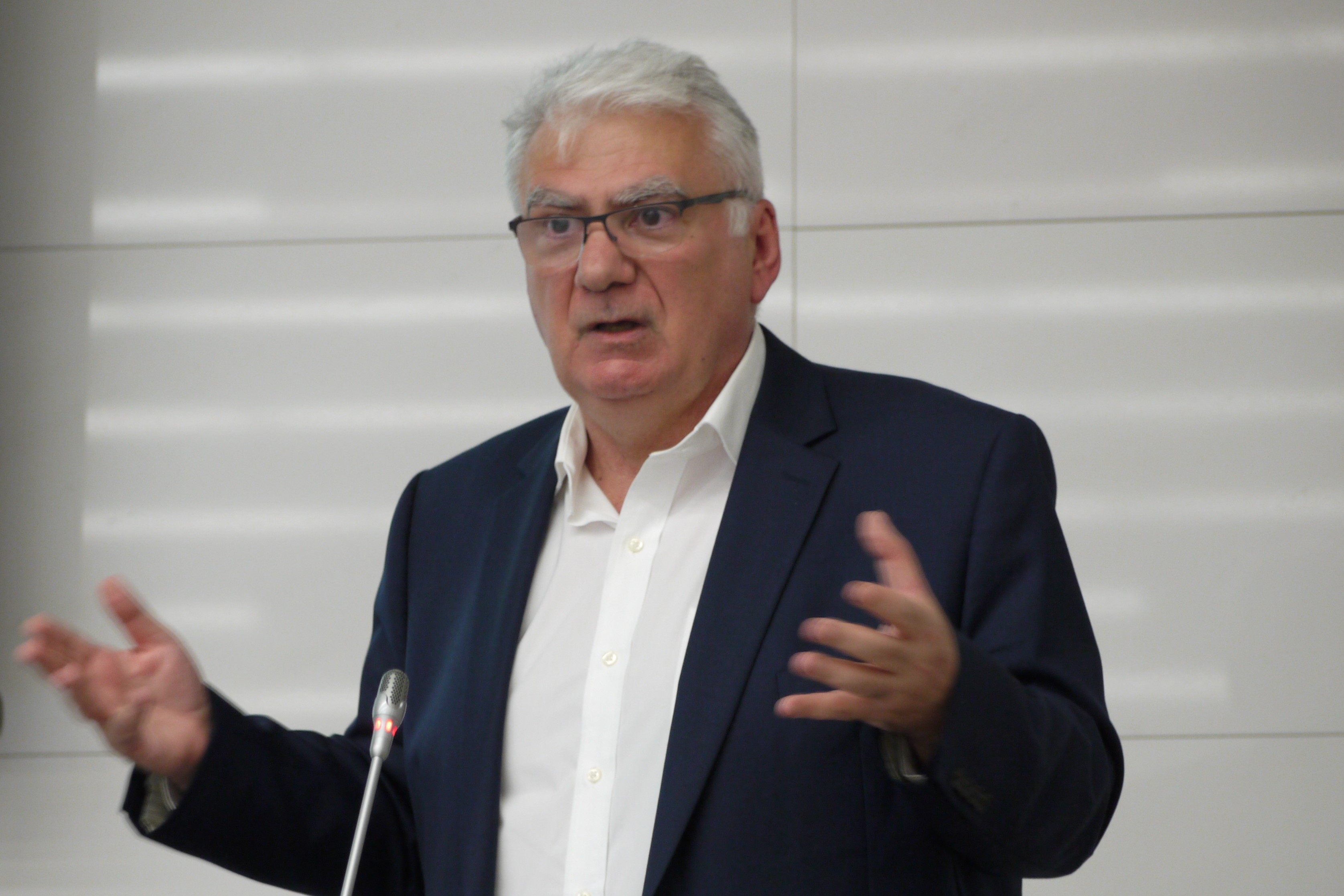
Professor Athanasios Orphanides (Massachusetts Institute of Technology, Honorary Adviser to the IMES) argued that the Fed and the ECB have ended up falling behind the curve because their forward guidance policies have not worked well during the current skyrocketing of inflation and he called this situation a “forward guidance trap.” He also argued that using the central bank’s policy reaction function can avoid the forward guidance trap and improve policy outcomes through clearer communication.
Prof. Orphanides showed that the strong recovery from the pandemic exceeded the expectations of the Fed and the ECB, and that central banks were too slow to adjust their policies and ended up falling behind the curve. He noted, for the Fed, that some elements, including the change to outcomes-based forward guidance and the sequence of asset purchasing and policy rate hikes, have delayed the policy response to inflation. He pointed out that forward guidance provides useful information about the policy rate path only when the economic situation remains in line with the baseline outlook; in the event of an unexpected increase in inflation, forward guidance could create traps that prevent a rapid policy response.
Finally, he stressed that in order to avoid the forward guidance trap, central banks should communicate using the central bank’s reaction function, which enables them to explain how future policy would evolve when economic shocks hit the economy. ( English<DPS>[1,303KB PDF] )
<Next page: Presentation Sessions and Policy Panel Discussion>
Prev Page
4.Presentation Sessions
In the presentation sessions, four cutting-edge papers were presented on the formation of inflation expectations, textual analysis of transcripts of policy meetings, and seasonal cycles of price changes, followed by discussions among the presenters, discussants, and floor participants.
5.Policy Panel Discussion
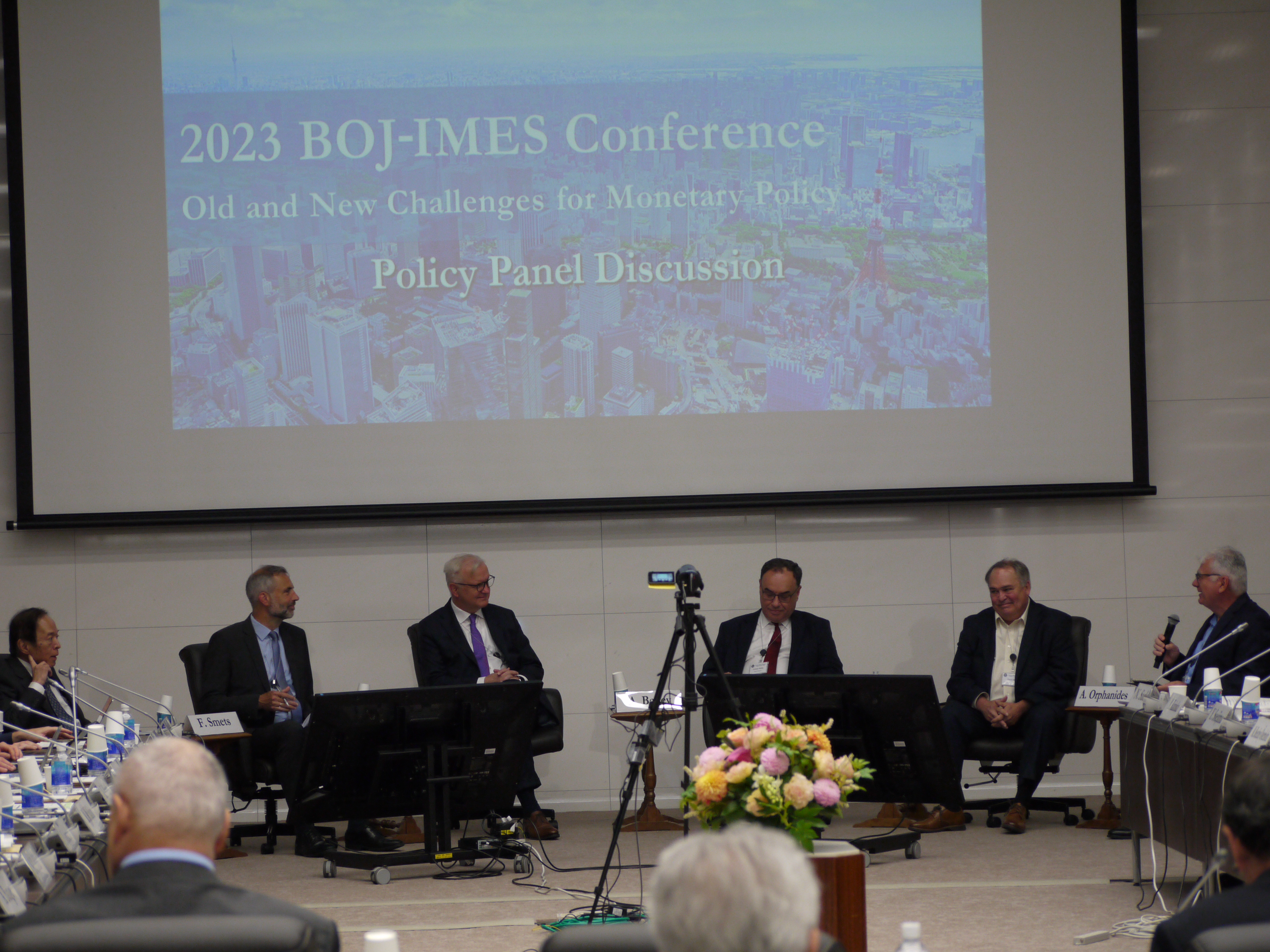
Two policy panel sessions were organized for this conference, one on the theme of “old challenges,” and one on “new challenges.”
The first panel discussion, moderated by Professor Athanasios Orphanides (Massachusetts Institute of Technology, Honorary Adviser to the IMES), featured five panelists: David Altig (Executive Vice President and Director of Research, Federal Reserve Bank of Atlanta), Andrew Bailey (Governor, Bank of England), Olli Rehn (Governor, Bank of Finland), Frank Smets (Adviser in the Counsel to the Executive Board, European Central Bank) and Kazuo Ueda (Governor, BOJ). They discussed the old challenges of monetary policy, including how to achieve price stability under the presence of large shocks to the economy.
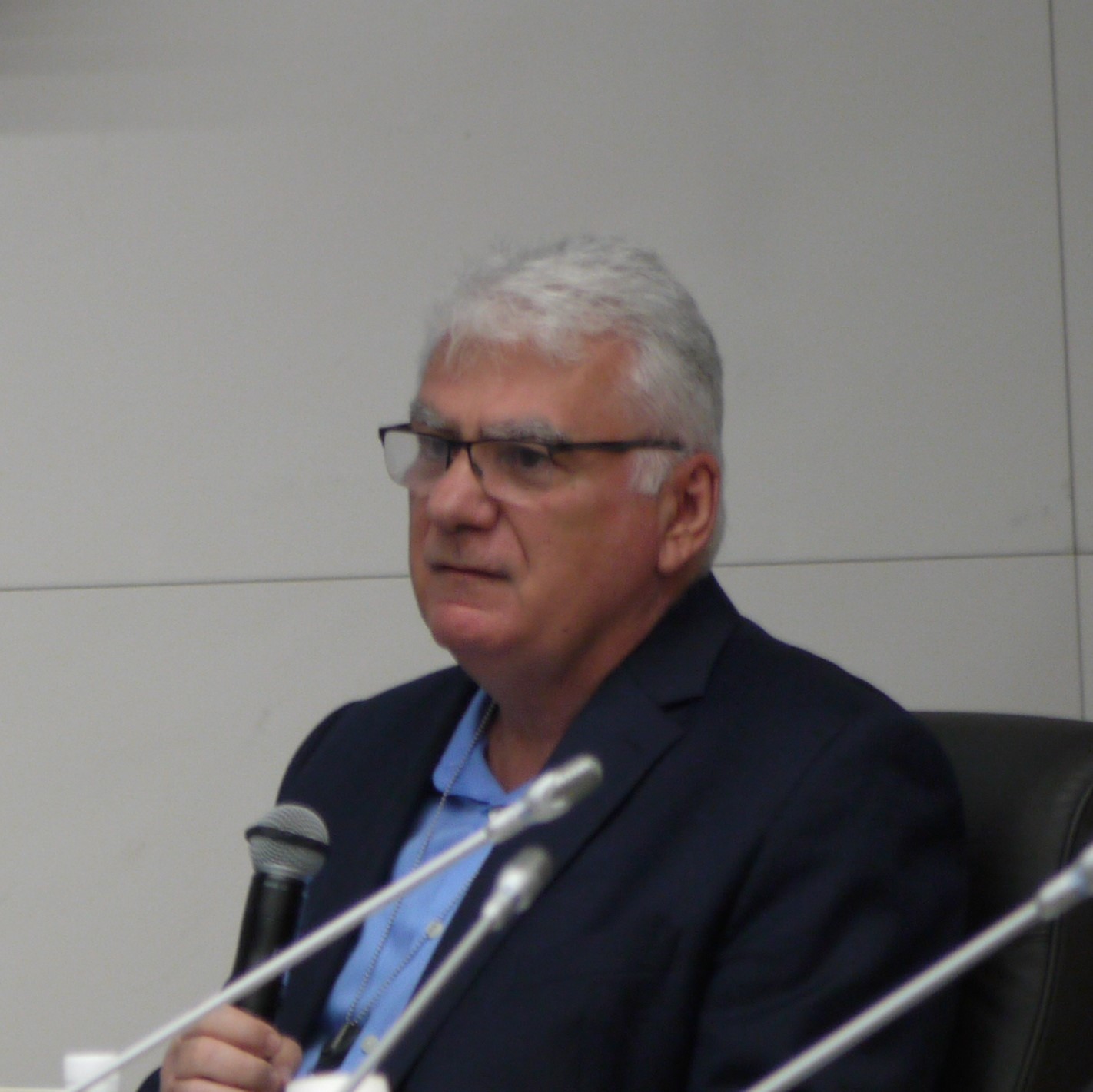
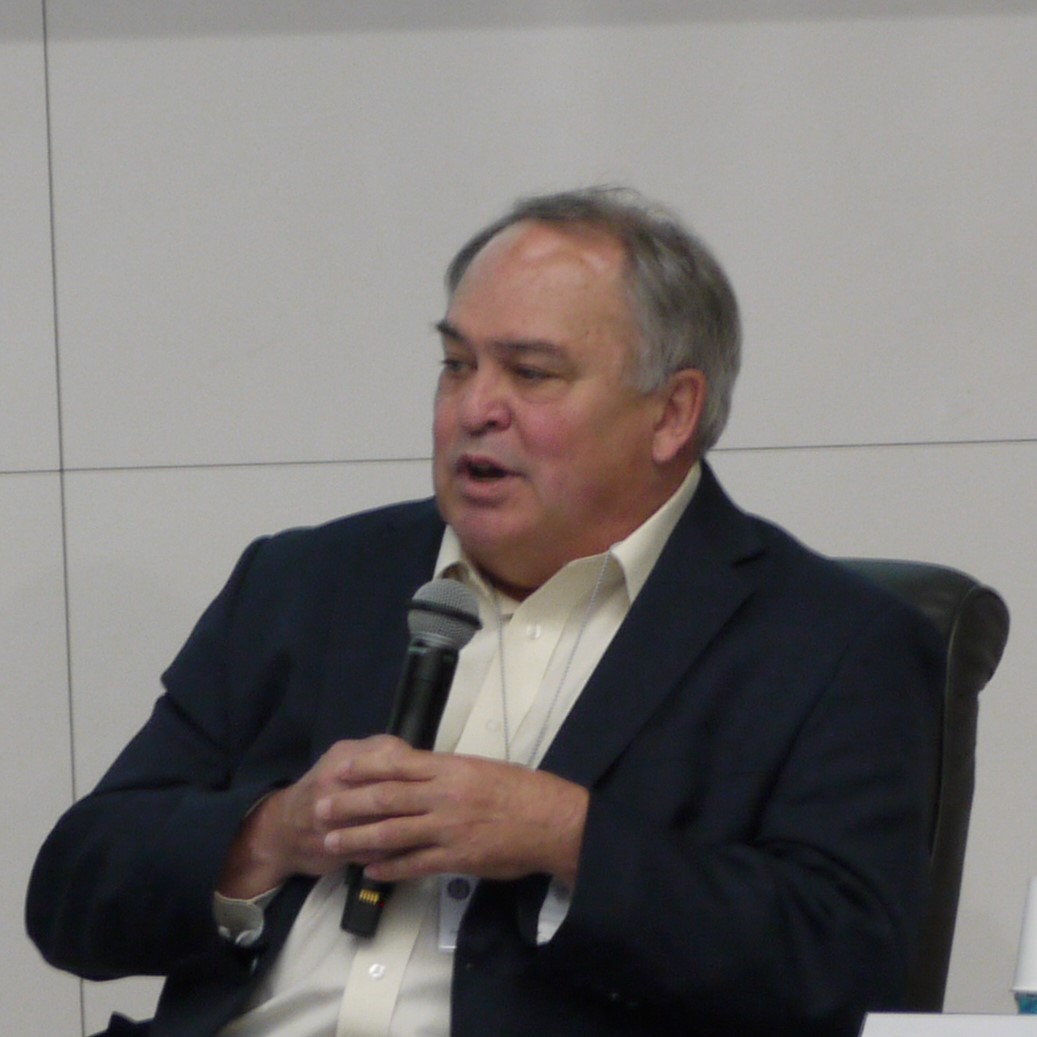
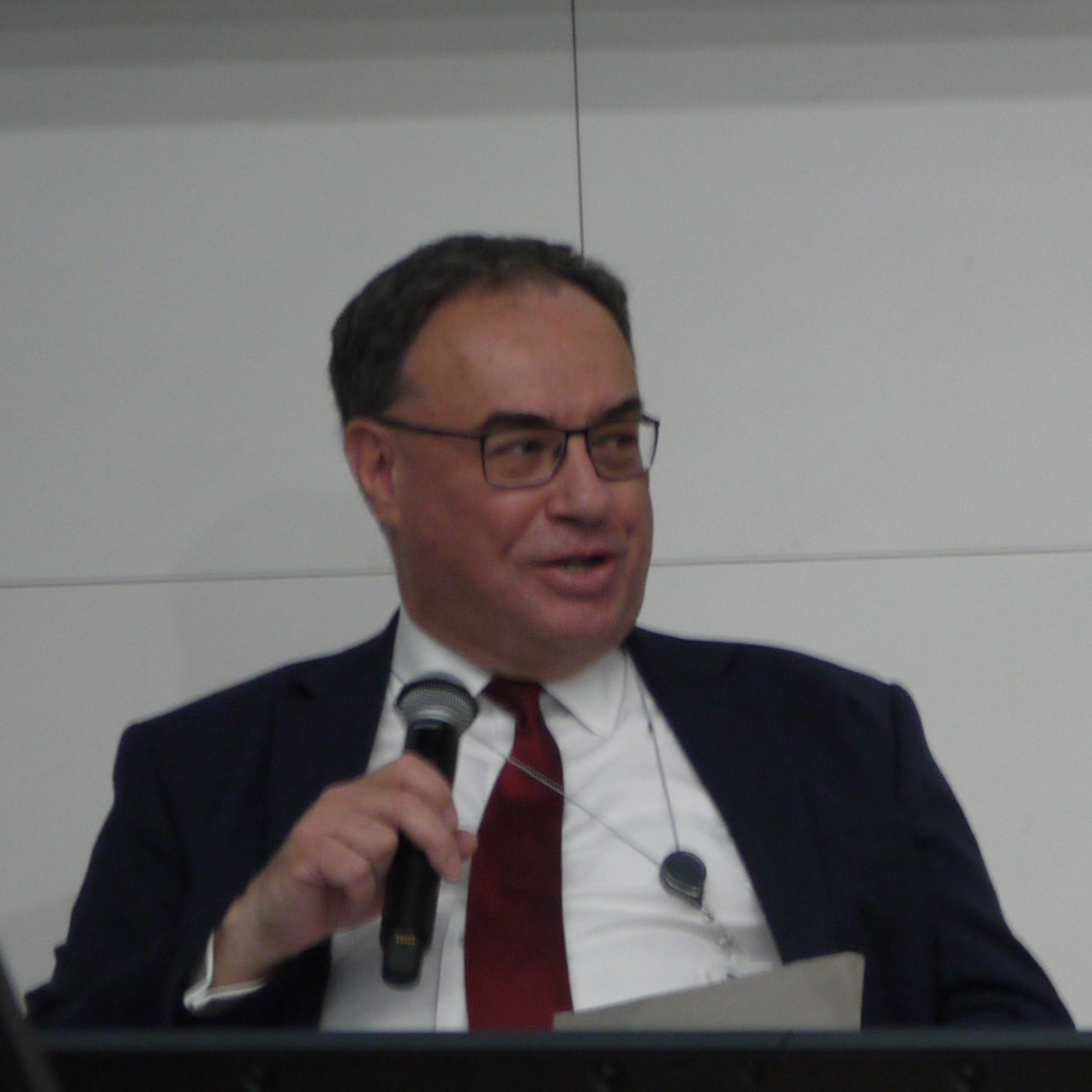
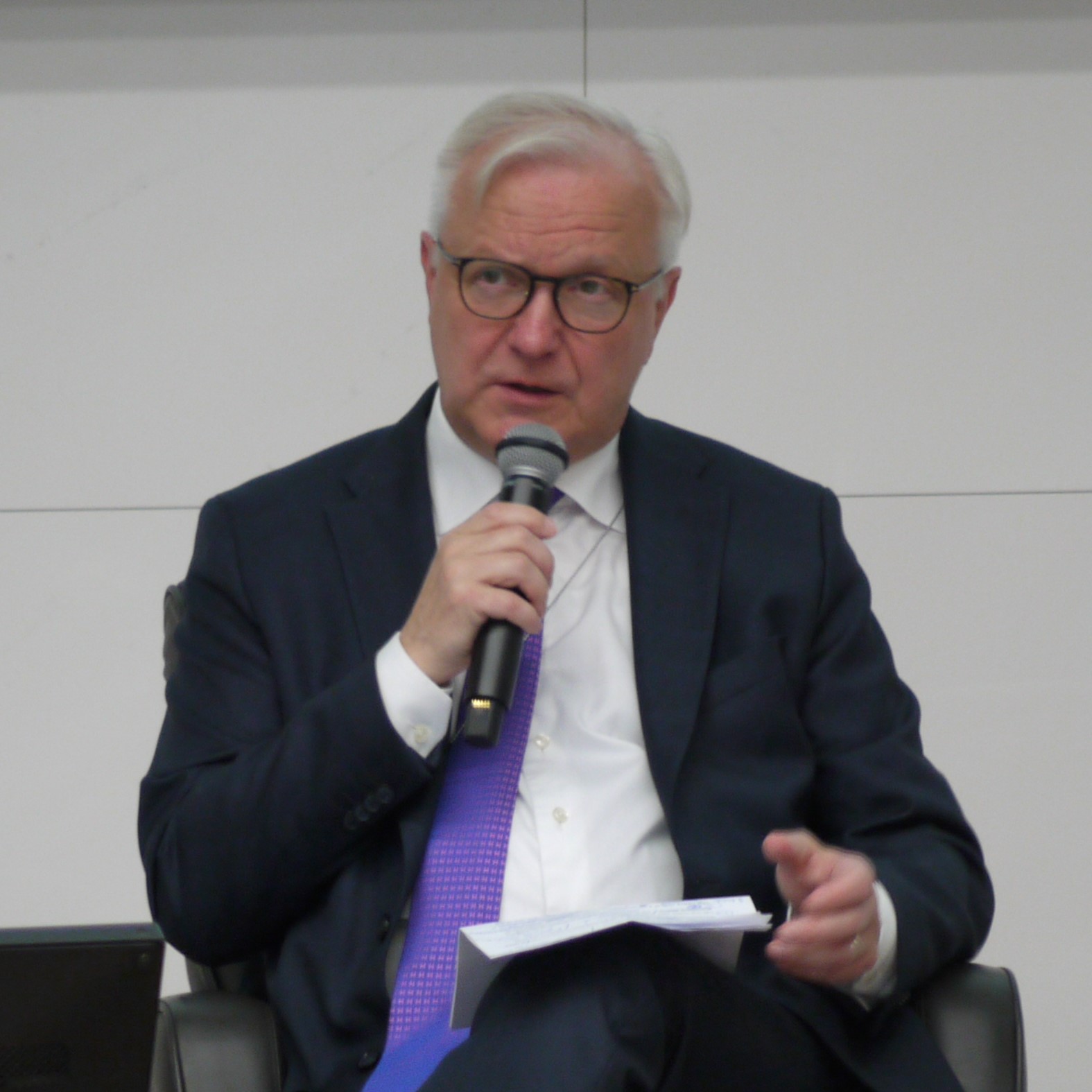
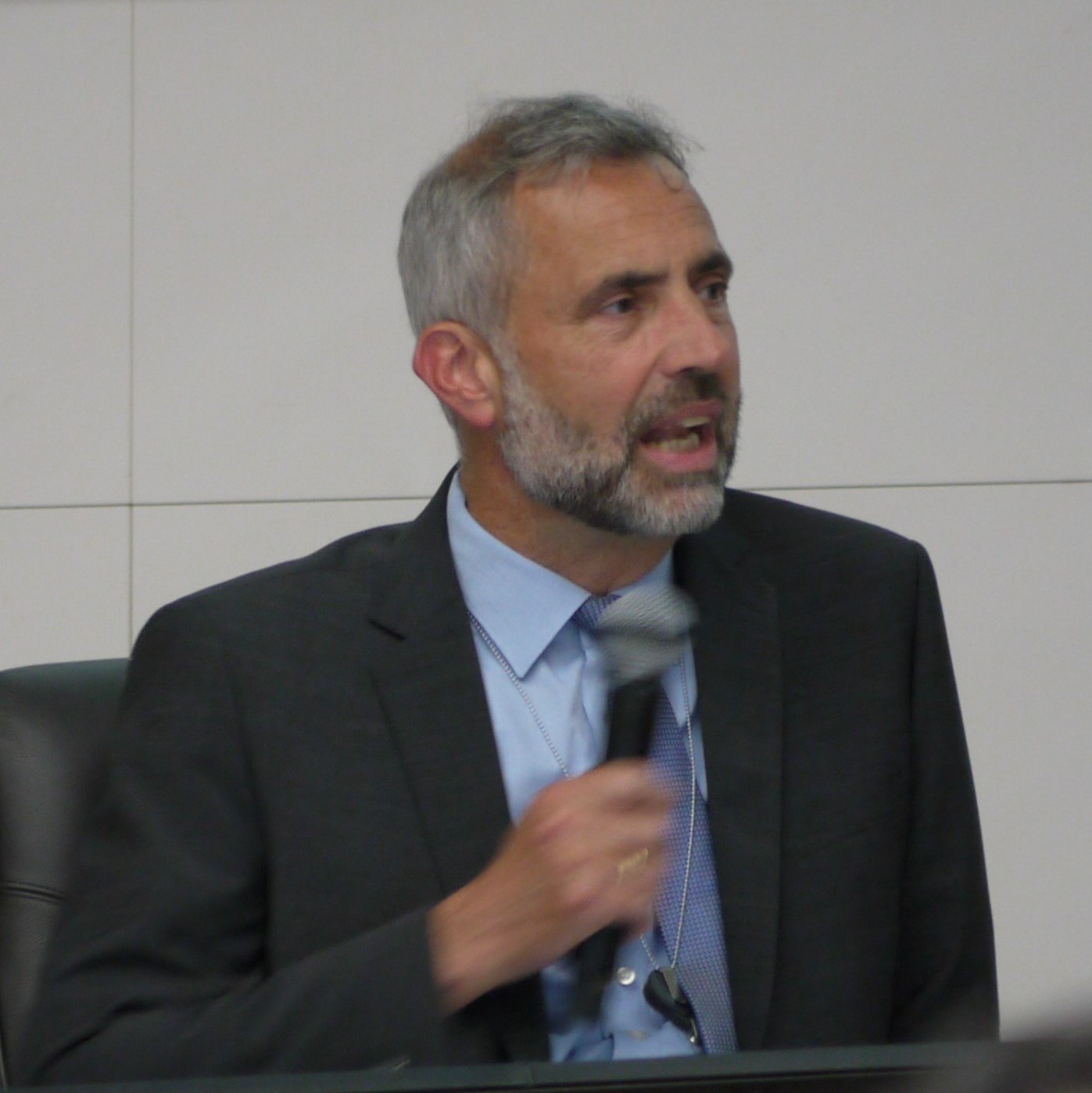
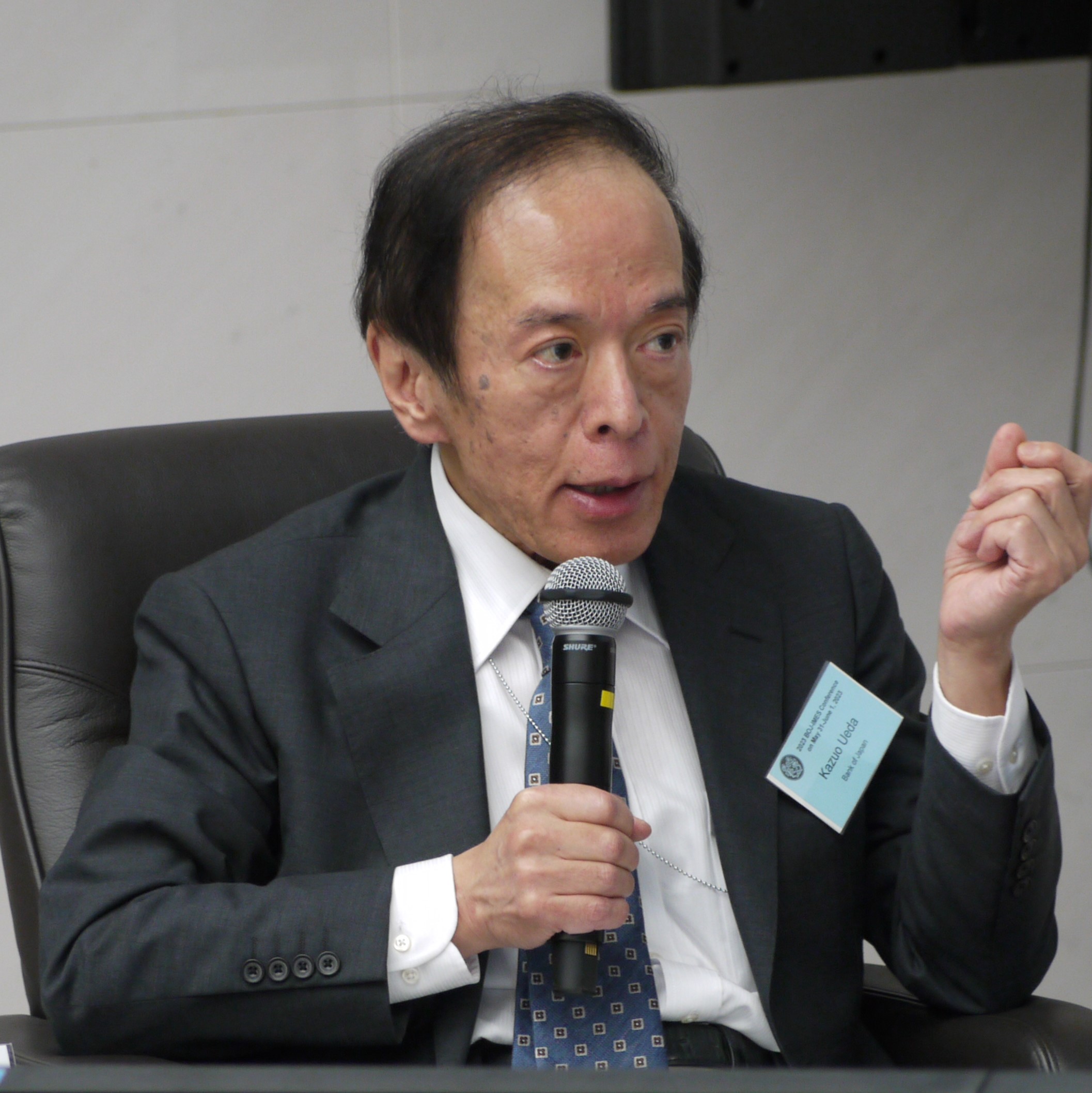
The second panel discussion, moderated by Professor Markus Brunnermeier (Princeton University, Honorary Adviser to the IMES), also featured five panelists: Aino Bunge (Deputy Governor, Sveriges Riksbank), Adam Glapiński (Governor, Narodowy Bank Polski), Pierre-Olivier Gourinchas (Economic Counsellor and Director of the Research Department, International Monetary Fund), Pablo Hernández de Cos (Governor, Banco de España) and Ryozo Himino (Deputy Governor, BOJ). They exchanged views on the relationship between price stability and financial stability, providing useful suggestions for future policy management.
